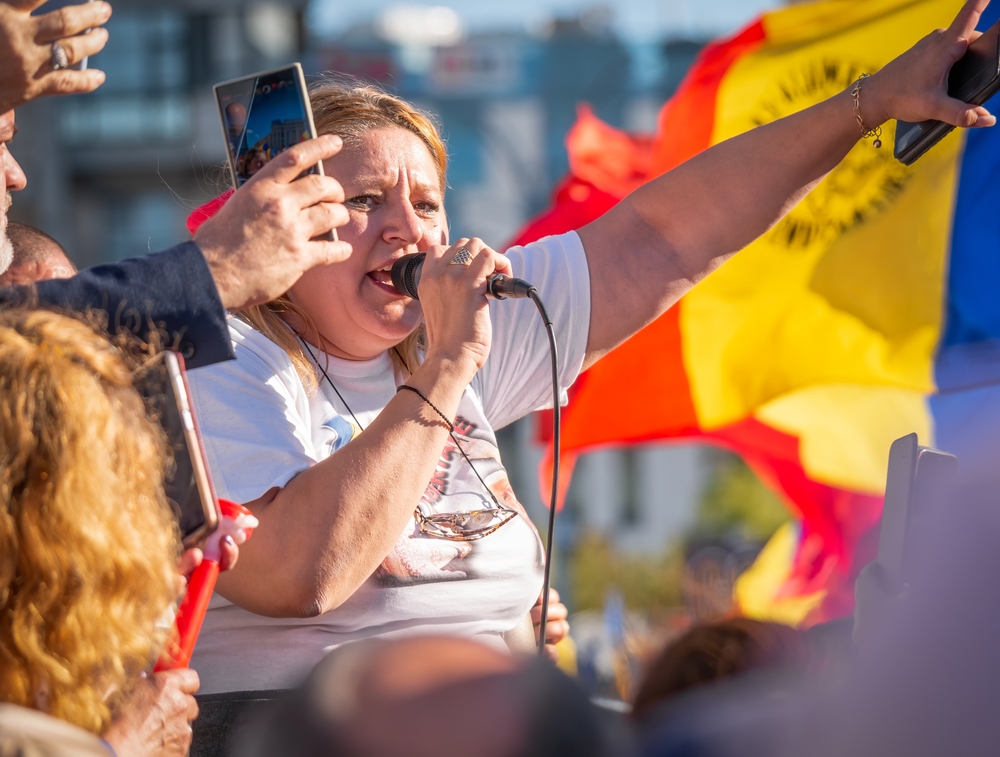A Romanian court has rejected the presidential candidacy of a hard-right politician, citing her pro-Russian stance and opposition to the European Union and NATO as reasons for disqualification.
The Constitutional Court’s decision, published late on Monday, bars Diana Šošoaca, an MEP and leader of the SOŠ Romania party, from running in the Nov. 24 presidential election.
According to Romania’s constitution, citizens over the age of 35 with no criminal convictions have the right to run for president. However, the court ruled that Šošoaca’s political views make her unable to uphold the constitutional mandate to respect democracy and the rule of law.
The court’s ruling passed with five votes in favor out of nine judges.
“The president of Romania, by the nature of his/her position, is a guarantor of the rule of law and constitutional democracy, principles that underlie the organization and functioning of the state. To deny or distort these principles is equivalent to repudiating the very idea of constitutionalism, which characterizes the existence of the rule of law.” the court held.
The judgment issued a staunch defense of Romania’s membership of the European Union and the NATO defense alliance, raising questions about whether an anti-EU candidate could ever reasonably be expected to contest for the Romanian presidency in the future.
“The Euro-Atlantic integration and the fact that Romania is part of the great European family is based on the idea of a state governed by law and democracy. It is axiomatic that the very adoption of the constitution since 1991 has the meaning of rejecting totalitarian, authoritarian, or anarchic regimes, which means that democratic levers cannot be used for the purpose of distorting/contesting the constitutional order thus established or Romania’s European course,” it added.
Šošoaca, a Member of the European Parliament known for her inflammatory rhetoric, has openly expressed pro-Russian and anti-Semitic views, along with sharp criticism of Romania’s membership in NATO and the EU.
Following the decision, Šošoaca took to YouTube in a defiant speech, referencing Corneliu Zelea Codreanu, the former leader of Romania’s fascist Iron Guard, and accusing “Jewish power” of orchestrating her exclusion. Her remarks sparked further controversy and reinforced her far-right, nationalist image.
Despite its legal reasoning, some politicians voiced concerns about the court’s decision, warning that it set a dangerous precedent. Critics argued that disqualifying a candidate based on political views could be seen as the ultimate undermining of Romania’s democratic values and an infringement on the right to free expression.
Šošoaca is not averse to controversy. She was recently penalized by the European Parliament for disrupting a July session during which she staged a protest against European Commission President Ursula von der Leyen involving anti-vaccine rhetoric, leading to her removal from the session. She has since been banned from the parliament’s plenary session for seven days and had her parliamentary allowance withheld.
Romania’s upcoming presidential elections, scheduled for Nov. 24, may see a second round on December 8 if no candidate secures a majority.
The elections will take place alongside parliamentary elections on Dec. 1.






